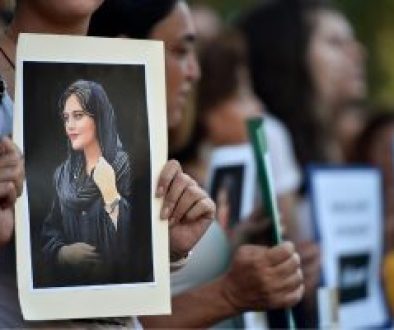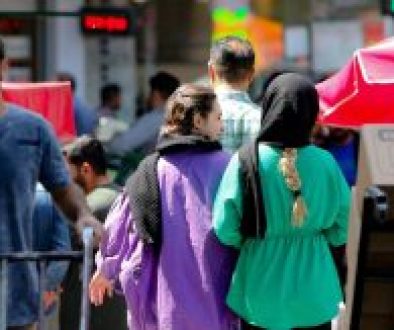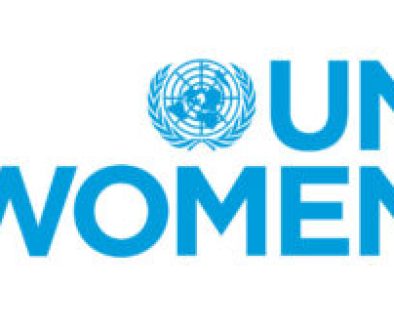Collective Statement of Azerbaijani Intersectional Feminists in Iran and in Exile on “Call for Lasting Peace in Nagorno-Karabakh”
Collective Statement of Azerbaijani Intersectional Feminists in Iran and in Exile
On “Call for Lasting Peace in Nagorno-Karabakh”
The contemporary history of Azerbaijan is on the one hand filled with repression and tyranny and on the other hand with the struggle of its people for freedom and democracy. While the people of Azerbaijan had the opportunity to opt for self-determination in the wake of the collapse of the Soviet Union, the country faced the consequences of two hundred years of Russian colonization, coup d’etat, domestic tyranny, and the military conflict with Armenia in 1988. The occupation of 20% of the Azerbaijani lands including Nagorno-Karabakh and 7 surrounding cities (Aghdam, Kalbajar, Lachin, Jabrail, Fuzuli, Ghobadli, and Zangilan) resulted in human genocide in Khojaly and displacement of one million Azerbaijanis. The thirty-year-long continued occupation of these areas and the silence of the international community despite the UN resolutions demonstrates how politics continues to serve the discourse of war.
The recent statement written by a group of well-known academics such as Gayatri Chakravorty Spivak, Noam Chomsky, Cornell West, Tariq Ali, Judith Herman, Sila Binhabib, and Wicken Berberian, reminded us that knowledge can be used as a tool to suppress the voices of the underprivileged, while concomitantly cementing unequal relations and the hegemony of the regional powers and the world economy in the unsteady geography of the Caucasus and the Middle East. Rethinking the binary between oppressed and oppressor obligates us to reconceptualize power more broadly. Given that postcolonial studies emphasize the role of power relations in knowledge production, the publication of such a one-dimensional statement by thinkers with a central role in the production and dissemination of critical knowledge indeed struck us as surprising. Most importantly, the international call of this statement, under the cover of nonviolence, demonstrates the self-conceit of Western academia. The thirty-year period of military standstill in Nagorno-Karabakh certainly has more complex reasons than the ideas of one single person or a secondary state’s politics. The reductionist approach of the recent statement combined with its implicit role in inducing Turcophobic sentiments, in fact, are questioning the basis of the knowledge, through which we aspire to change the situation in the world.
Opting for peace and bringing an end to hostilities must go hand in hand with ensuring justice for all involved parties – otherwise, any peace has little prospects of proving viable. Violence, war, and weapons are essential for the perpetuation of a patriarchal system; a system that, in interaction with other systems of domination and discrimination, suppresses women and questions their dignity and equal rights. The recent statement without reference to UN resolutions of 822, 853, 874, and 884 in 1993 on Nagorno-Karabakh, and ignoring the bombing of non-militant areas a few days ago in the city Ganja causing the death of dozens of Azerbaijani civilians, including women and children, are not only signs of the death of humanity, it paves the way for the reproduction of the discourse of violence. It is a reaffirmation of the fact that in the academic community of the West, and even among its postcolonial and feminist scholars, “the subaltern can still not speak.”
We, a group of Azerbaijani intersectional feminists, express our deepest regret and sorrow at this statement, and our opposition to any occupation, violence, militarization, and internal tyranny. We also emphasize the need for a democratic system based on human rights, guaranteeing the rights of all minority groups in the territory of Azerbaijan. We condemn the war and call for the implementation of UN resolutions by the Armenian government and an end to the occupation.
22 October 2020
- Azam Ahmadi, Ph.D. in Political Science, Zanjan
- Elnaz Sardarnia, Ph.D. Student in Turkish Folklore, Tabriz
- Faeze Bahadori, Poet, Writer, Marand
- Faranak Farid, Poet, Writer, Feminist Activist, Tabriz
- Fatemeh Dehghan Ph.D. in International Relations, Salmas
- Fatemeh Nasirpour, M.A. in Information Technology, Marand
- Giti Adalati, Ph.D. in Sociology and Social Psychology, Hamburg
- Hajar Kabiri, Ph.D. Student in Sociology, Khoy
- Jale Javanshir, M.A. Student in Anthropology, Ardabil
- Lale Javanshir, Ph.D. in Turkish Studies, Toronto
- Mahdieh Ahani, Managing Editor of Ban Magazine, Tabriz
- Maryam Gholizadeh, Ph.D. Student in Area Studies, Tabriz
- Mina Ajalli, Carpet Designer, Mianeh
- Nigar Khiavi, Poet, Writer, Translator, Meshgin Shahr/ Khiav
- Rahimeh Mohammadfard, Poet, Writer, Tabriz
- Robabeh Taghizadezonouz, Ph.D. Student in Linguistics, Zonuz
- Roghayyeh Ebrahim Zadeh, Musician and Head Of The Women’s Mountaineering Team, Tabriz
- Roghayyeh Kabiri, Writer, Khoy
- Sabour Kabiri, Ph.D. in Sociology, Khoy
- Sahar Javanshir, M.A. in Cinema and Film Studies, Ardabil
- Sevda Alimadadnezhad, M.A. Student in Informatics and Communication Engineering, Tabriz
- Sevil Suleymani, Ph.D. Student in Sociology, Feminist Activist, Washington, D.C
- Soudabeh Taghizadehzonouz, Ph.D. Student in Sociology, Zonuz
- Torkaman Tamadoni Gamchi, Feminist Activist, IT Business Analyst, Virginia





